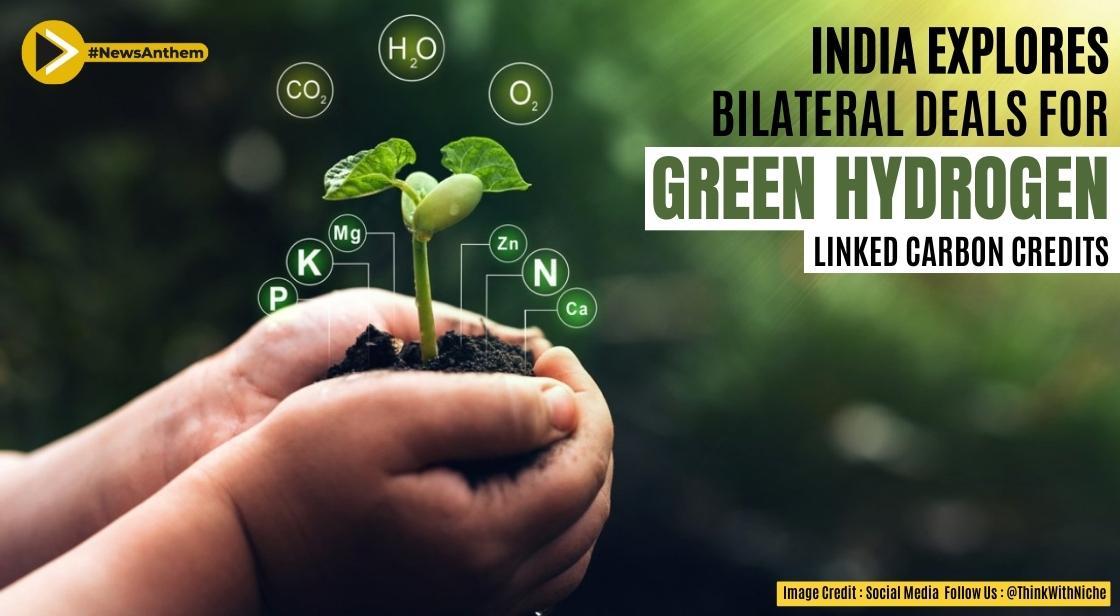India Explores Bilateral Deals for Green Hydrogen-Linked Carbon Credits

News Synopsis
India is actively pursuing bilateral agreements with countries such as Japan to unlock the potential of carbon credits linked to green hydrogen production.
This strategy aims to attract foreign investments and facilitate purchase transactions, as India strives to mitigate carbon dioxide emissions and position itself as a leading exporter in the green hydrogen sector.
The Indian government's recent announcement of a substantial incentive program further emphasizes its commitment to promoting green hydrogen.
India's Push for Green Hydrogen and Carbon Credits
India has embarked on an ambitious mission to embrace green hydrogen as a key driver in reducing carbon emissions. In a bid to support this endeavor, the government announced a significant US$ 2.13 billion (Rs. 174.9 billion) incentive program, signaling its commitment to fostering the growth of green hydrogen technologies within the country.
This initiative aims to position India as a major exporter of green hydrogen while simultaneously tackling environmental challenges.
Bilateral Agreements to Harness Carbon Credits
In pursuit of its green hydrogen goals, India is actively seeking bilateral agreements, particularly with nations like Japan. These agreements would enable India to utilize carbon credits associated with green hydrogen generation, presenting a valuable opportunity for foreign investors and facilitating purchase transactions.
By capitalizing on carbon credits obtained through greenhouse gas reduction initiatives, India aims to attract additional capital and secure offtake for its green hydrogen production.
Joint Crediting System and the Paris Agreement
In March 2023, India and Japan signed a preliminary agreement to establish a Joint Crediting System (JCM) for decarbonization under Article 6 of the Paris Agreement. The Paris Agreement, a binding international treaty addressing climate change, provides a framework for countries to collaborate on carbon reduction efforts.
Article 6 specifically outlines the transfer of carbon credits between nations and commercial entities. This collaboration between India and Japan would enable consumers of green hydrogen to receive carbon emissions credits, which would typically be attributed to the producers, thereby incentivizing the use of green hydrogen.
Negotiations and Prospective Carbon-Trading Agreements
Negotiations regarding potential carbon-trading agreements are underway among various Indian ministries, including the ministries of environment, renewable energy, and external affairs. These discussions highlight India's concerted efforts to explore avenues for international cooperation in carbon credit utilization.
The prospective agreements would involve overseas companies or financial institutions entering into investment and purchase agreements with Indian green hydrogen producers, further bolstering the growth of the sector.
Conclusion:
India's pursuit of bilateral agreements for green hydrogen-linked carbon credits signifies its commitment to combatting carbon dioxide emissions while promoting the growth of green hydrogen technologies.
By leveraging carbon credits and attracting foreign investments, India aims to establish itself as a prominent player in the green hydrogen market, thereby contributing to global efforts in mitigating climate change and fostering sustainable development.
You May Like









